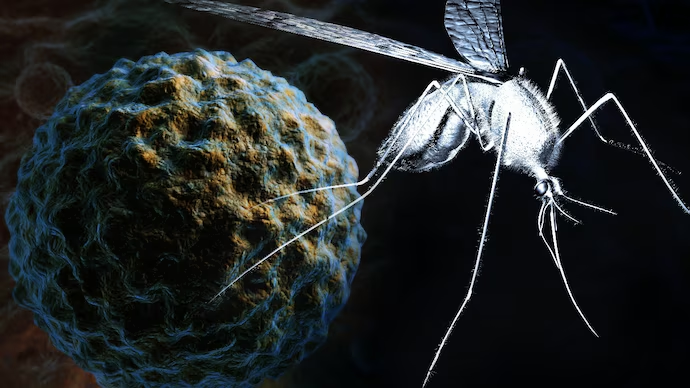May 9 (Punjab Khabarnama) : Kerala’s health department has issued an alert after confirming cases of West Nile fever in three districts: Thrissur, Malappuram, and Kozhikode.
To combat the spread of West Nile fever, the state government has urged all districts to heighten vigilance and implement stricter mosquito control measures. This includes intensifying pre-monsoon cleaning efforts and increasing mosquito surveillance activities.
What causes West Nile fever?
According to Dr Rakesh Gupta, Senior Consultant — Internal Medicine, Indraprastha Apollo Hospitals, West Nile fever is a mosquito-borne disease caused by the West Nile virus. It is primarily spread through the bite of an infected mosquito, which becomes a carrier after feeding on infected birds. The birds are the primary carriers of the virus.
According to the health department, approximately 80 per cent of those infected will not show any symptoms.
The virus can also spread through organ transplantation, blood transfusion, or from mother to child during pregnancy or breastfeeding, albeit rarely.
What are the symptoms?
Most people infected with the West Nile virus do not develop any symptoms. However, around 20% of infected individuals may experience fever, headache, body aches, nausea, vomiting, and skin rash, explained Dr Gupta.
“In severe cases, which occur in less than 1% of infections, the virus can cause neurological complications like encephalitis, which is inflammation in the brain or meningitis, which is an inflammation of the membranes surrounding the brain and spinal cord,” Dr Gupta said in an interaction with indianexpress.com.
Can it be treated?
There is no specific treatment for West Nile fever, noted Dr Gupta. In milder cases, the symptoms can be managed through over-the-counter medications for pain and fever relief.
Severe cases, he added, may require hospitalisation, intravenous fluids, respiratory support, and prevention of secondary infections.
“Recovery from the illness depends on the individual’s age and overall health condition, with older adults and those with weakened immune systems being at higher risk for severe complications,” Dr Gupta said.
While there is no specific cure, the focus is on managing the symptoms and preventing further complications, the doctor explained. Individuals with weakened immune systems or underlying medical conditions are at a higher risk for severe complications and may require more aggressive treatment.

